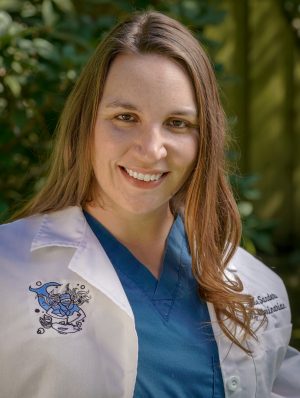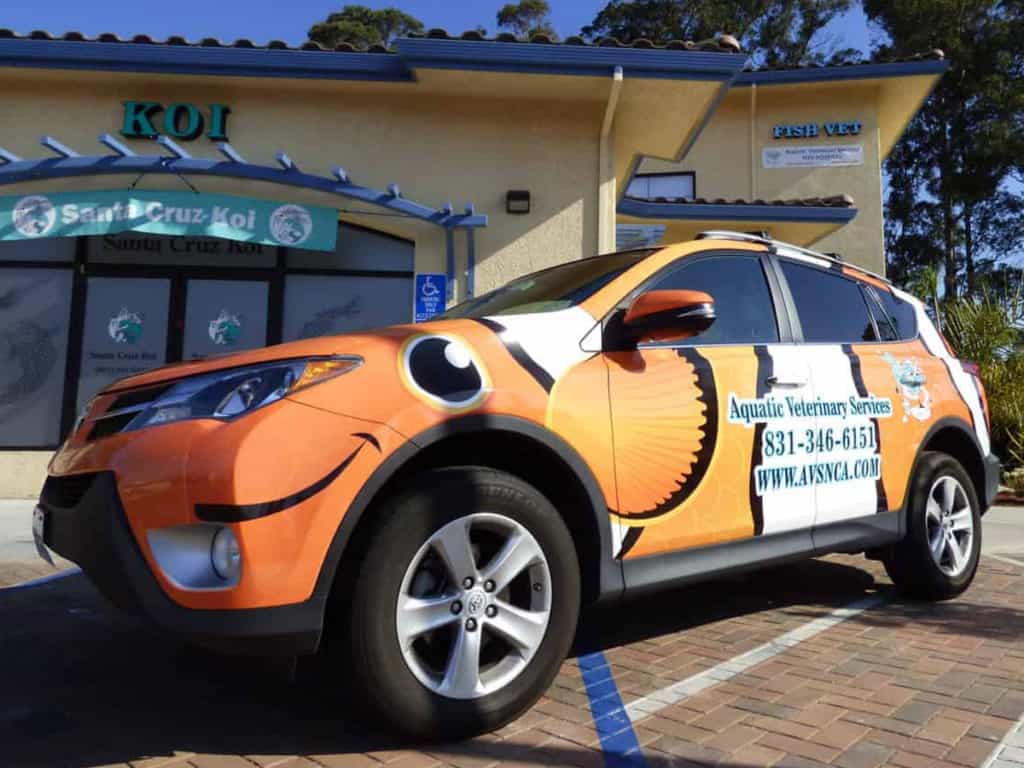Many people are surprised to find that our services are more than they expected compared to what they pay for a cat or dog appointment. Why is our pricing more?
General Practice vs. Specialty Practice Pricing
Our practice manager puts it concisely, “would you go to your GP to get back surgery?” Of course not! Gone are the days of old when your doctor or veterinarian was a one stop shop. Specializations throughout the medical fields have allowed more advanced study and practice of many species and body systems. Aquatic practice is certainly on this list. Our veterinarian went to Tufts Veterinary School and received 2 HOURS of fish training. Out of 3 years of classroom learning, only 2 HOURS were dedicated to the patients we see every day. In addition to learning about dogs, cats, horses, pigs, sheep, cows and goats, Dr. Sanders decided to add fish, turtles, invertebrates and marine mammals. She was one of the first Certified Aquatic Veterinarians through the World Aquatic Veterinary Medical Association. All of this additional training and certification has made our practice a specialty practice.
Now, compare the cost of a trip to your cardiologist vs. your GP. If you have good health insurance, there’s little to no difference. But what about taking your dog or cat to the cardiologist? It’s going to be a longer wait to get an appointment and a significantly higher bill. If you’ve never had to take your pet to a specialist, count yourself lucky. Aquatic Veterinary Services is a specialty practice with training maybe 0.2% of all veterinarians have. (Take the 91,000 AVMA members compared to the 180 American Association of Fish Veterinarian members + 1500 World Aquatic Veterinary Medical Association Members + 360 International Association of Aquatic Animal Medicine members.)

Mobile Specialty Service Pricing
In addition to being highly trained, our office comes to you. You don’t have to do anything other than let us in and talk to us on the phone. Our doctor brings all of her own equipment, does all the capture and restraint, and performs all the water quality testing and physical exams on her own. No assistants, no heavy equipment, just be glad she works out a lot. Our travel fees are fairly low because we want to make our services as widely available as possible. We know there are many fish that need our services so our service area is a 3 hour drive radius, approximately 600 miles of California coast line. Do you know how far most other mobile vets travel? 30 miles. That’s it. If there were more fish vets, we would refer to them. But there isn’t anyone else, so we’ll get to you.
Our office works best as a mobile clinic because fish do not like to be touched… ever. If something grabs them, they think, ‘something is going to eat me.’ Rather than having you try to catch your fish, throw it in an appropriate container, drive it to the vet hospital and then repeat in reverse, your fish can stay at home and we’ll get them out and restrain them safely. Our veterinarian is VERY GOOD at catching fish. Ask any of our clients. She has over 15 years practice, before she every went to veterinary school. In order to keep fish stress levels low, we sedate most of our patients during their exams. The sedative drug that we use, MS-222, is very expensive, and there are cheaper alternatives, such as clove oil, but they are not commercially produced the same way every time. We know exactly how it will work, how long your fish will be under and how long they will take to recover.
However, a mobile service adds a convenience fee on top of our specialty status. Yes, our fees are high, but you get what you pay for: a specialty trained veterinarian coming to your house, doing all the work in a safe and efficient manner, fixing the problem and setting your fish up for a successful future.

How to Get the Most Out of Your Appointment
Our standard appointment is 1 hour and we do not charge for additional time until you go over an hour and a half. During this time, you are free to observe and ask all the questions you want. We strongly suggest you write some down, before the vet arrives.
Here are some topics to consider:
- Do I have too many fish?
- Are my filters sufficient for my pond volume and bioload of fish?
- Can I add any more fish?
- Should I get rid of some fish?
- Is my maintenance routine sufficient?
- Is my fishes’ food good?
- Am I feeding them enough/too much?
- How can I improve their environment?
And those are just suggestions! Anything fish-related is open for discussion, so use your time with our veterinarian to the best of your advantage!
